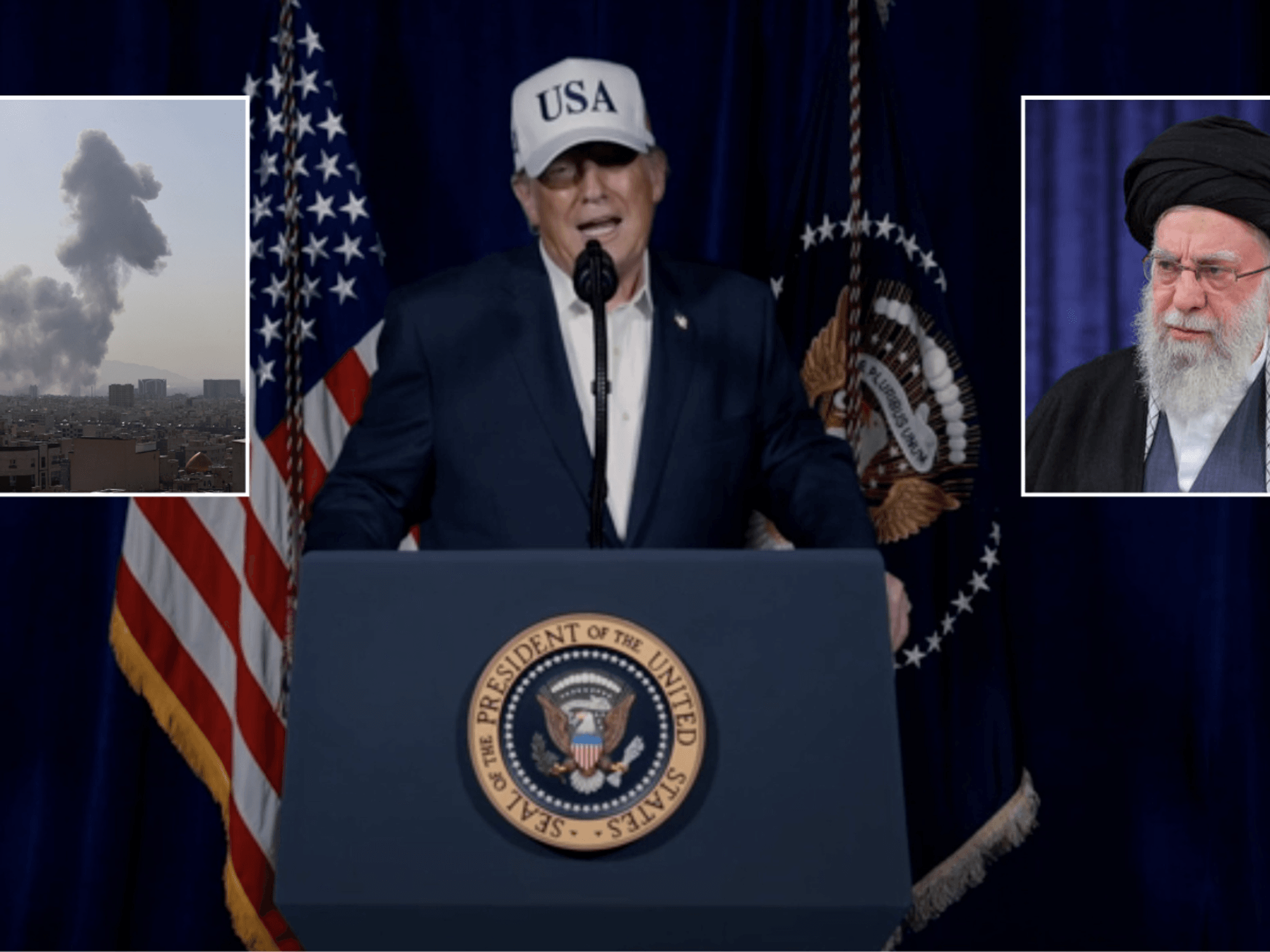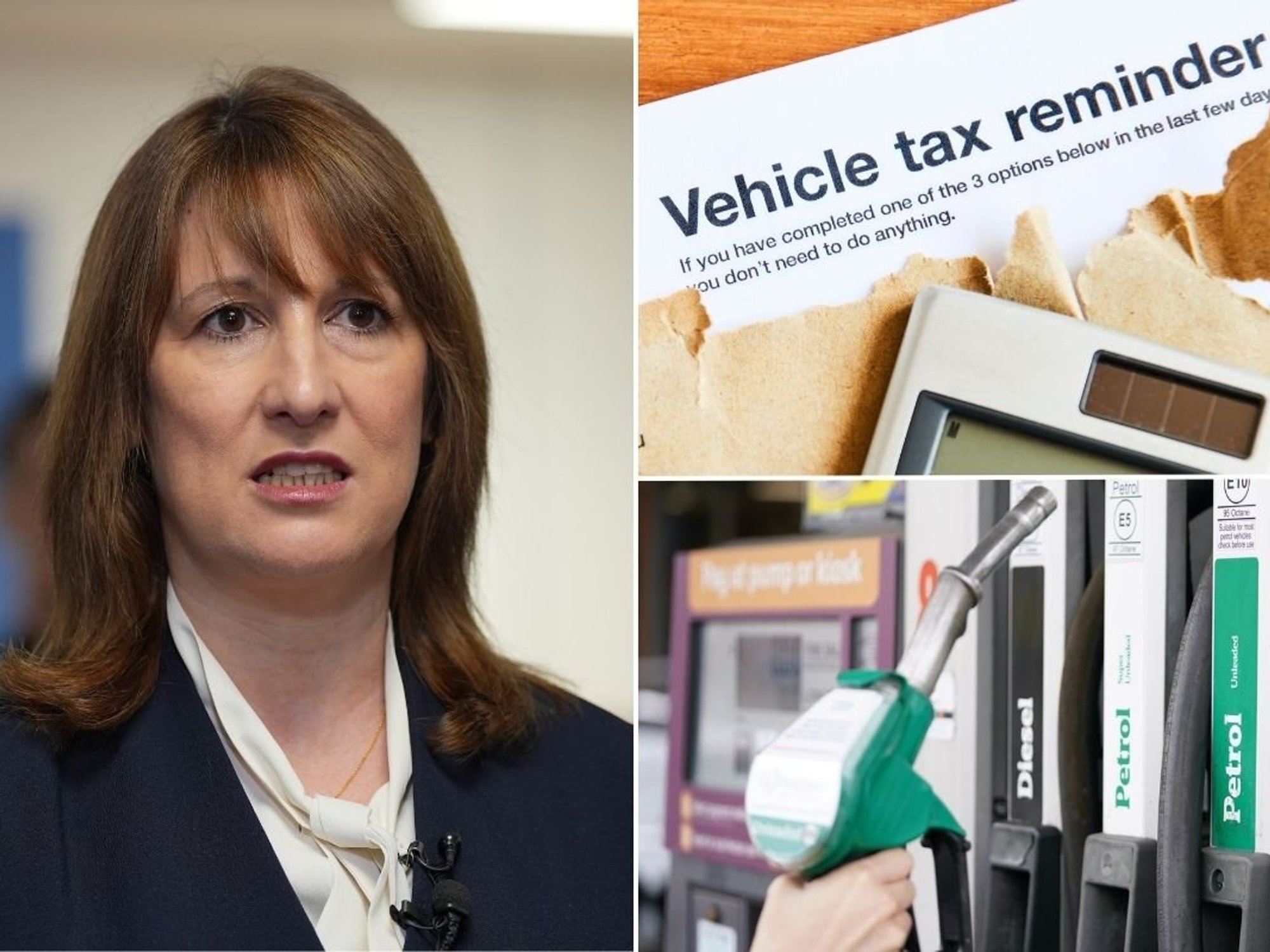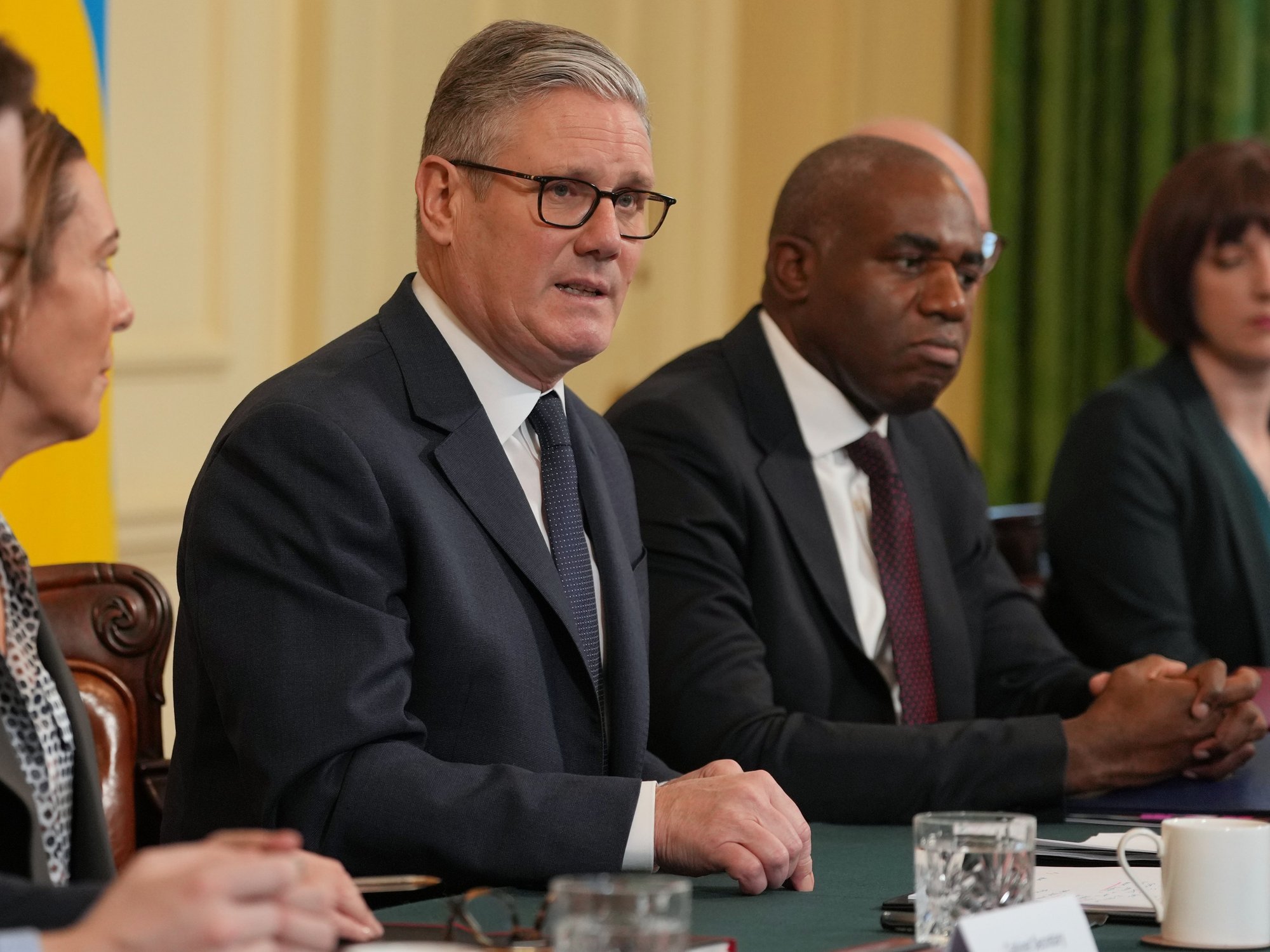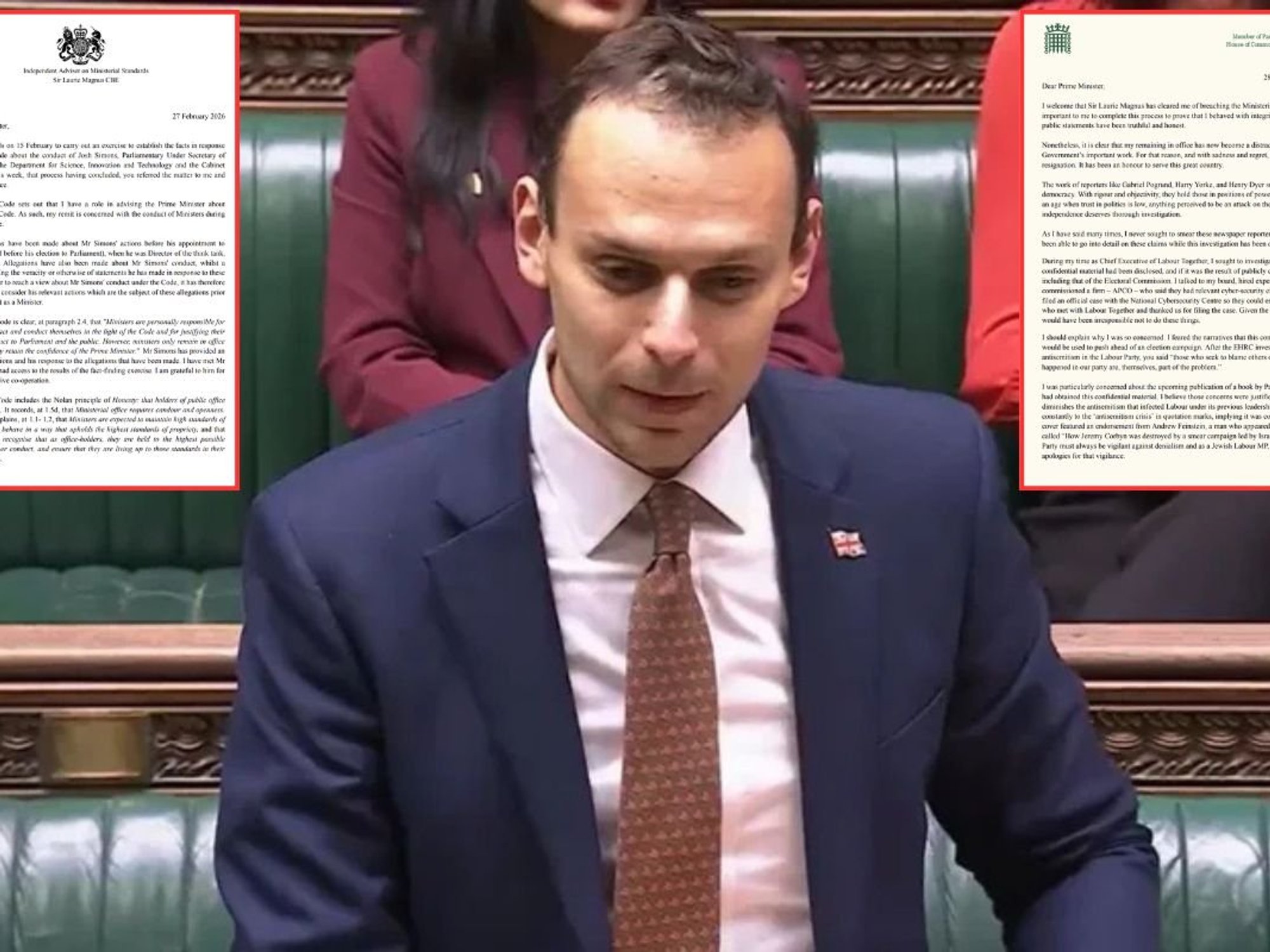We sneer at Russian state TV, but the BBC's downfall reveals a very uncomfortable truth - Renee Hoenderkamp
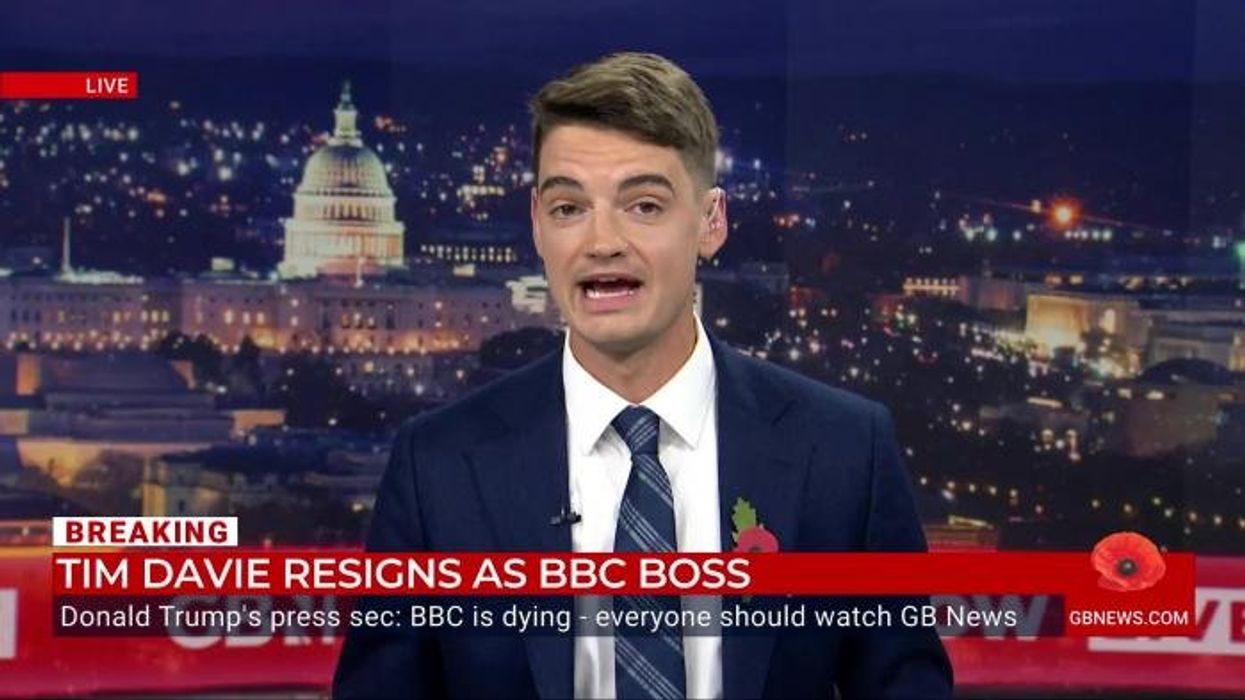
'This may NOT be the end of the resignations' - Multiple heads tipped to roll at BBC after Tim Davie quits in disgrace |
GB
Our state broadcaster is just slicker, smugger and wrapped in the cloak of 'neutrality', writes Renee Hoenderkamp
Don't Miss
Most Read
Trending on GB News
We are quick to sneer at Russian state TV as nothing more than a mouthpiece for Putin, a propaganda network dressed up as journalism, serving the state rather than the people. But here’s the uncomfortable truth: the BBC has become Britain’s own version of that same machinery.
It’s just slicker, smugger, and wrapped in the self-congratulatory cloak of “public service” and “neutrality.” The difference isn’t moral; it’s aesthetic. One uses overt censorship and nationalism.
The other hides its bias behind polished accents, measured tones, and a veneer of impartiality. Yet the result is the same: manipulation, agenda, and the erosion of public trust.
Bit by bit, the mask has slipped. Whistleblowers, internal leaks, and independent reports have begun to expose what many long suspected: that the BBC is no longer a platform for open debate or fair coverage, but a deeply ideological institution, out of touch with ordinary people and the values it pretends to represent. The BBC once claimed to “inform, educate, and entertain”. Now, it lectures, indoctrinates, and divides.
For decades, the BBC has traded on its global reputation for integrity. Its foreign correspondents were admired for their bravery; its journalists were trained to resist political pressure. But somewhere along the line, the balance tipped.
Objectivity gave way to activism, and journalism became moral crusading. What was once Britain’s proudest export has turned into a mirror of everything that has gone wrong with our national institutions, which are bloated, arrogant, and captured by a narrow elite who mistake their worldview for truth.
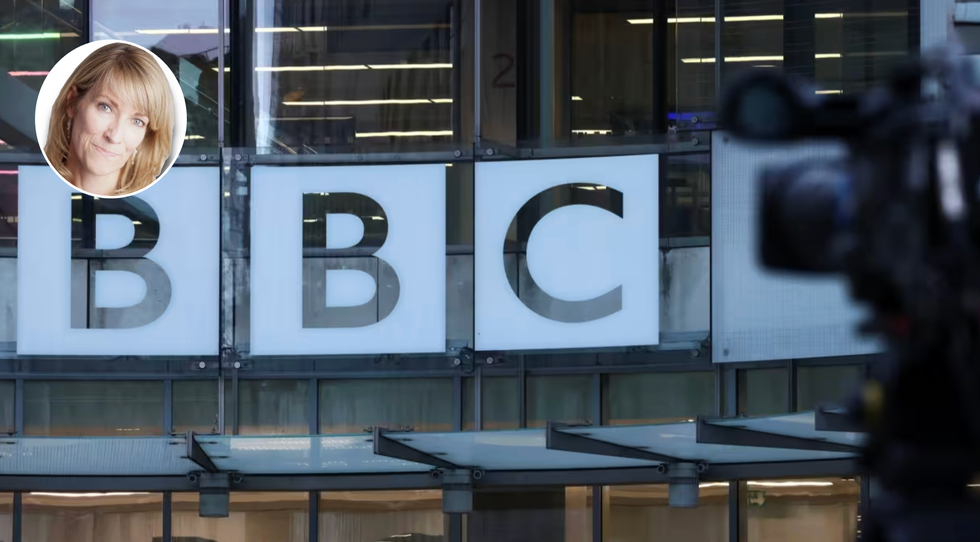
We sneer at Russian state TV, but the BBC's downfall reveals a very uncomfortable truth - Renee Hoenderkamp
|Getty Images
The final nail in the coffin came when the BBC turned its bias on the most powerful man in the world, Donald Trump, and found itself on the receiving end of his wrath.
When Trump called the BBC “a leftist propaganda machine”, many dismissed it as typical bombast. But then the evidence began to surface.
A leaked internal investigation revealed that BBC producers had literally edited together two different speeches to make it appear as though Trump had incited violence at a rally. It was a Frankenstein’s monster of misinformation, spliced for effect, stripped of context, and broadcast to millions as fact.
That wasn’t a mistake. It was a choice. A deliberate act of narrative manipulation. And it backfired. Because if there’s one thing Trump has never been, it’s afraid to fight back.
“They’ve taken on the wrong enemy,” one aide said, and he was right. In attempting to destroy Trump’s credibility, the BBC only managed to destroy its own.
This incident was not an isolated lapse; it was a symptom of something far deeper. Across its coverage, the BBC has displayed a consistent, almost obsessive bias, not only against Trump, but against any figure or movement that challenges the liberal orthodoxy.
Brexit, gender politics, climate debates, Israel, immigration; on every one of these issues, the corporation has taken sides, often with breathtaking sanctimony. It no longer even pretends to report the news; it filters it through ideology.
Take the BBC’s children’s programming, once an innocent staple of British life. Increasingly, it’s become a delivery mechanism for what critics sneeringly call gender ideology, with programmes and educational segments pushing contested ideas about identity and sexuality to children too young to question them.
Gender-critical voices, otherwise known as women who simply argue that biological sex matters, are silenced, mocked, or excluded entirely. The message is clear: dissent will not be tolerated.
Then there’s the BBC’s international coverage, especially of the Middle East. Its reporting on Israel and Hamas has repeatedly drawn outrage.
Not because it criticises Israel, which is now considered that’s fair game in most journalism, but because it frames the narrative in ways that equate a democratic state with a terrorist organisation.
When Hamas murdered civilians, the BBC hesitated to even use the word “terrorist”. When Israel defended itself, the headlines cast it as the aggressor. It’s a grotesque distortion of moral reality, masquerading as balance.
This bias extends far beyond individual stories. It’s embedded in the culture of the organisation itself. Insiders describe a newsroom where left-wing views are the default setting, where social conservatism is treated as backward, and where journalists compete not to uncover truth but to signal virtue.
The BBC’s own diversity and inclusion policies reinforce this monoculture, rewarding conformity and punishing dissent. One former employee put it bluntly: “It’s like working in an HR department that makes television.”
And all of this, every lecture, every moral sermon, every sneering panel show, is funded by you and me. The licence fee forces every household in Britain to bankroll the BBC, whether they agree with its output or not.
Refusing to pay can result in a fine or even imprisonment if the fine is not paid. It’s an absurd relic of another age. A compulsory tax to sustain an institution that no longer serves the people who fund it.
The irony is staggering. The BBC positions itself as a champion of democracy and accountability, yet it is one of the least accountable organisations in the country.
It answers to no market pressures, faces no real competition for funding, and shrugs off criticism as “attacks on free media.”
When ordinary Britons object to being forced to fund its biases, they are dismissed as populists or reactionaries. It’s the same elitist disdain that has infected so many of our institutions: universities, the civil service, even the Church.
The BBC doesn’t see itself as a broadcaster anymore. It sees itself as the conscience of the nation: a self-anointed moral authority.
But here’s the uncomfortable truth: the public no longer buys it. Trust in the BBC has collapsed, particularly outside London and among working-class viewers.
People are tired of being lectured to by million-pound presenters who sneer at their values. They are tired of the hypocrisy.
They see an organisation that preaches austerity while paying Gary Lineker more than the Prime Minister, that claims to represent the public while despising half of it.
The rot is everywhere. It’s cultural, moral, and institutional. Walk past Broadcasting House and you can almost smell it — the decay of an organisation that once represented the best of Britain but now stands for its decline.
The BBC has become a symbol of our national malaise: obsessed with identity, allergic to truth, hostile to dissent, and blind to its own bias. It has damaged not just journalism, but the very fabric of society, fuelling division, corroding trust, and promoting a culture of moral superiority that alienates those it claims to serve.
How much longer will the government allow this bloated, leftist propaganda machine to extort the public under the banner of “public service broadcasting”?
The licence fee is no longer defensible, and neither is the BBC’s claim to impartiality. In an age of on-demand media, where truth can be sourced directly, the idea that one state-funded broadcaster should define “reality” for 67 million people is absurd.
We don’t need to be indoctrinated. We don’t need to pay to be told what to think. The BBC should be defunded, democratised, or dismantled, because a free country cannot afford a media that speaks only for the powerful, while pretending to speak for everyone.
Let the BBC stand or fall by its own merit, not by our money. Let the people choose what they watch, what they fund, and what they believe.
Until then, the institution will remain what it has become: not a beacon of truth, but a polished propaganda machine, broadcasting the slow decay of Britain back to itself.
Our Standards: The GB News Editorial Charter
More From GB News






